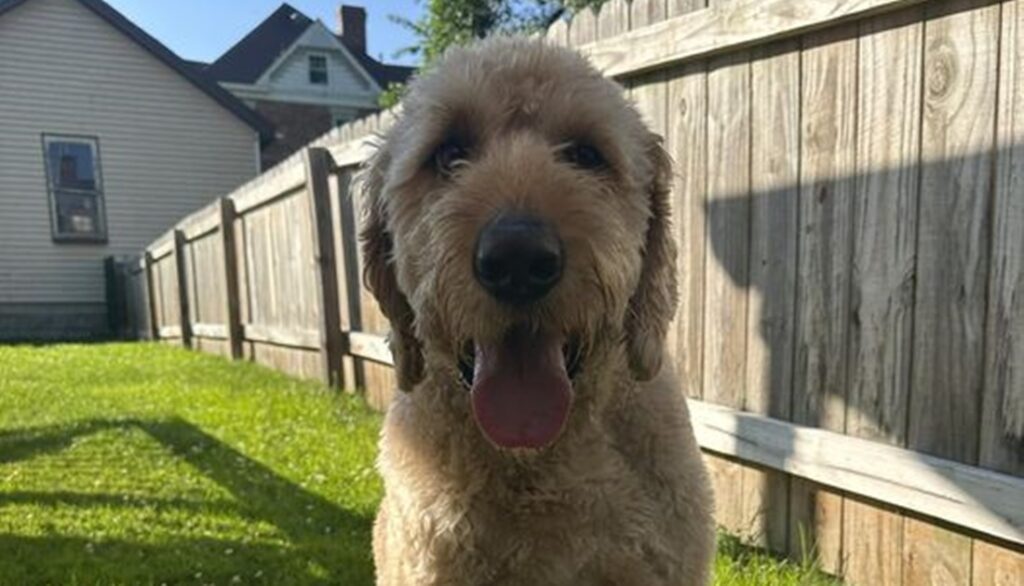If you’re a dog owner, it’s likely that you’ve heard of kennel cough – a highly contagious respiratory illness that can affect dogs of all ages. The good news is that there is a vaccine available to protect your pet against this illness. But you may be wondering – at what age can dogs get the kennel cough vaccine?
In this section, we will provide important information regarding the vaccination timeline for your furry friend. We’ll discuss the ideal age at which dogs can receive the kennel cough vaccine, so you can take the necessary steps to keep your pup healthy.
Key Takeaways
- Kennel cough is a highly contagious respiratory illness that can affect dogs of all ages.
- There is a vaccine available to protect your dog against kennel cough.
- It’s important to know at what age dogs can receive the kennel cough vaccine.
At What Age Can Dogs Get Kennel Cough Vaccine?

Kennel cough vaccine is given to puppies as young as 3 weeks old in high-risk situations, and for adult dogs or puppies older than 16 weeks, the vaccine can be administered once or twice depending on the type (intranasal or injectable).
It is important to consult with a veterinarian to determine the appropriate age and frequency of vaccination for your dog based on their individual needs and potential exposure to other dogs.
Understanding Kennel Cough and Its Importance

Kennel cough, also known as infectious tracheobronchitis, is a highly contagious respiratory disease that affects dogs of all ages and breeds.
The condition is caused by a combination of bacterial and viral infections and is commonly transmitted through close contact with infected dogs in crowded environments such as kennels, dog parks, and grooming facilities.
Symptoms of kennel cough include a persistent dry cough, gagging or retching, nasal discharge, and mild fever. While kennel cough can be mild in some dogs and resolve on its own, it can also progress into pneumonia and become severe, particularly in puppies, elderly dogs, and those with weakened immune systems.
The good news is that kennel cough can be prevented through the use of vaccines. There are several types of vaccines available for kennel cough prevention, including injectable, intranasal, and oral forms. It is important to consult with your veterinarian to determine the best vaccine for your dog based on their age, medical history, and lifestyle.
The Recommended Age for Kennel Cough Vaccine
The kennel cough vaccine is an essential preventative measure to protect your dog from respiratory illnesses caused by infectious agents. According to the American Veterinary Medical Association, dogs as young as 6 weeks old can receive the vaccine.
However, the AVMA recommends that puppies receive their initial vaccination at 6-8 weeks of age, followed by boosters every 2-4 weeks until they reach 16-18 weeks of age.
Adult dogs who have not been vaccinated before should receive an initial vaccine, followed by a booster 2-4 weeks later. After the initial vaccinations, adult dogs require annual boosters to maintain their immunity against kennel cough.
Kennel Cough Vaccine Schedule for Dogs
The recommended vaccination schedule for kennel cough in dogs involves two types of vaccines, the Bordetella vaccine and the canine parainfluenza virus vaccine. These vaccines are usually administered together to provide comprehensive protection against kennel cough.
The Bordetella vaccine is available in three different forms – an intranasal spray, an oral liquid, and an injection. The intranasal spray is the most common method of administration and is recommended for puppies as young as 6 weeks old.
This vaccine should be given every 6 to 12 months depending on your dog’s risk factors and exposure to high-risk environments.
The canine parainfluenza virus vaccine is usually given as an injection and can be administered to puppies as young as 6 weeks old. This vaccine should be given every 3 years to maintain protection against the virus.
It is important to note that the vaccination schedule may vary depending on your dog’s individual needs and risk factors. Your veterinarian can provide personalized guidance regarding the appropriate vaccination schedule for your furry friend.
Kennel Cough Vaccine Administration for Dogs
The kennel cough vaccine can be administered to dogs in several ways, including through injection, intranasal spray, or oral medication.
The injection method involves a needle being inserted into the muscle tissue, typically on the dog’s hind leg. The intranasal spray method involves the vaccine being sprayed directly into the dog’s nostrils. The oral medication method involves the dog taking medication in the form of a pill or chewable treat.
It is important to note that the administration of the kennel cough vaccine should always be carried out by a licensed veterinarian. This ensures that the vaccination process is performed correctly and that proper precautions are taken to prevent any adverse reactions.
Additionally, it is recommended to avoid vaccinating a dog that is already sick or undergoing any medical treatment. Vaccination during such times could potentially harm the dog’s health and lead to adverse reactions.
Possible Side Effects and Precautions
Like with any vaccine, the kennel cough vaccine can cause side effects in some dogs. Common side effects include lethargy, vomiting, and diarrhea, which are usually mild and resolve on their own within a few days. More severe reactions, such as an allergic reaction, can occur but are rare.
If you notice any unusual symptoms in your dog after vaccination, contact your veterinarian immediately. They can provide guidance on how to manage any reactions and determine if further medical attention is necessary.
Before administering the vaccine, it is important to ensure your dog is in good health and free of any underlying conditions that could increase the risk of adverse reactions. Your veterinarian will conduct a thorough examination and may recommend bloodwork to ensure your dog is healthy enough for vaccination.
If your dog has a history of allergic reactions or previous adverse reactions to vaccines, it is essential to inform your veterinarian. In some cases, your veterinarian may recommend pre-medication or a different vaccination schedule to reduce the risk of a reaction.
In addition, it is crucial to follow the appropriate vaccine administration guidelines. Only a licensed veterinarian should administer the kennel cough vaccine. It should never be given to a sick or pregnant dog. Proper storage and handling of the vaccine are also essential to maintain its efficacy and prevent contamination.
By taking these precautions and monitoring your dog closely after vaccination, you can help minimize the risk of side effects and ensure their overall health and well-being.
Additional Factors to Consider
While getting your dog vaccinated against kennel cough is crucial for their health, there are additional factors to consider before making the decision.
- Health condition: Dogs with a weakened immune system or existing respiratory issues may require a modified vaccination plan. Discuss your dog’s health condition with your vet to determine the best course of action.
- Potential exposure: If your dog frequently visits dog parks, and kennels, or interacts with other dogs, they may be at a higher risk for contracting kennel cough. Consider vaccinating your pup for added protection.
You can make an informed decision about whether the kennel cough vaccine is right for your dog. Consult with your veterinarian to discuss any concerns or questions you may have.
Consulting Your Veterinarian for Guidance
When it comes to vaccinating your dog against kennel cough, consulting with your veterinarian is crucial. A veterinary professional can provide personalized guidance regarding your dog’s individual health needs and potential exposure risks.
Your veterinarian can also provide valuable information on the different types of kennel cough vaccines available and recommend the best option for your dog. They can explain the ideal vaccination schedule and administration methods to ensure your dog receives the vaccine safely and effectively.
If you have any concerns or questions about vaccinating your dog against kennel cough, ask your veterinarian for advice. They are there to help you make informed decisions and keep your furry friend healthy.
FAQ
Q: At What Age Can Dogs Get Kennel Cough Vaccine?
A: The ideal age at which dogs can receive the kennel cough vaccine varies depending on various factors. It is best to consult with your veterinarian to determine the appropriate age for your dog.
Q: What is kennel cough and why is getting a vaccine important for dogs?
A: Kennel cough is a highly contagious respiratory infection that affects dogs. Getting a vaccine is crucial as it helps protect your dog against this illness. Also, it reduces the risk of transmission to other dogs.
Q: When is the recommended age for dogs to receive the kennel cough vaccine?
A: The specific age at which dogs should receive the kennel cough vaccine can vary. It is recommended to consult with your veterinarian who can provide guidance based on your dog’s individual circumstances.
Q: What is the recommended kennel cough vaccine schedule for dogs?
A: The recommended vaccination schedule for kennel cough in dogs typically involves multiple doses. Your veterinarian will advise on the appropriate intervals between each vaccination to ensure your dog is adequately protected.
Q: How is the kennel cough vaccine administered to dogs?
A: The kennel cough vaccine can be administered through various methods, including injections or oral administration. It is important to have a licensed veterinarian carry out the vaccination process to ensure it is done correctly.
Q: What are the possible side effects of the kennel cough vaccine and what precautions should be taken?
A: Like any vaccine, the kennel cough vaccine may have potential side effects, such as mild fever or local swelling. Precautions should be taken, such as monitoring your dog for any adverse reactions and contacting your veterinarian if any concerns arise.
Q: What are the additional factors to consider when deciding to vaccinate your dog against kennel cough?
A: When deciding to vaccinate your dog against kennel cough, it is important to consider factors such as your dog’s overall health condition and potential exposure to high-risk environments, such as boarding facilities or dog shows.
Q: Why is it important to consult a veterinarian for guidance on the kennel cough vaccine?
A: Consulting a veterinarian is crucial as they can provide personalized guidance based on your dog’s individual needs and health history. They can also address any specific concerns you may have regarding the kennel cough vaccine.
Conclusion
Getting the kennel cough vaccine for your dog is a crucial step in safeguarding their health, especially if they are frequently exposed to high-risk environments.
It is important to follow the recommended vaccination schedule and consult with your veterinarian for personalized guidance. By doing so, you can help protect your furry friend against this highly contagious respiratory disease.





Leave a Reply